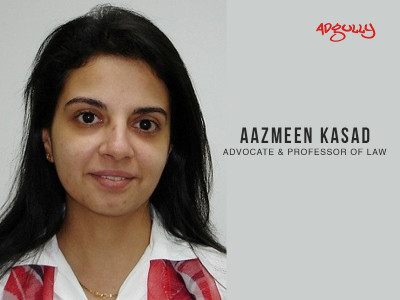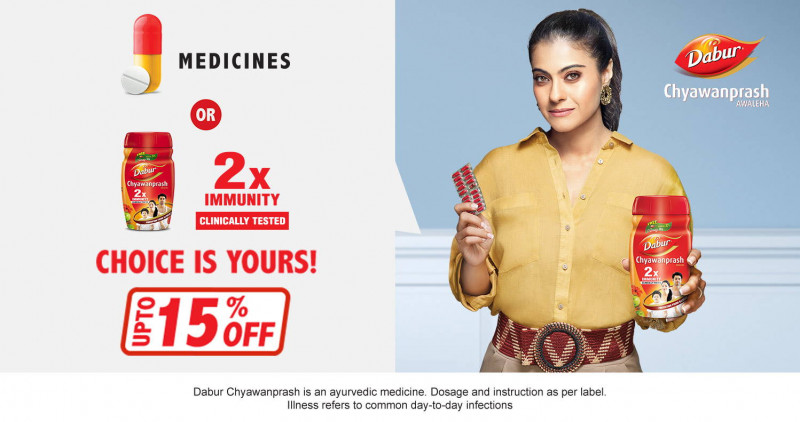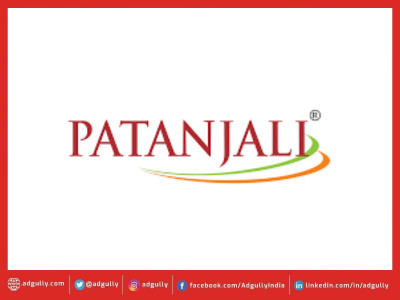Misleading Ads: Are consumers becoming immune to ‘Immunity Claims’?
Over the past few months, we are witnessing a spate of advertisements which are claiming to boost one’s immunity. In fact, almost every product links the benefit of immunity to its purchase and consequent consumption, and this is now no more restricted to food products alone. This Article by Advocate Aazmeen Kasad is part of a series of articles on Misleading Advertising. Part 9 covers the aspect of the immunity boosting claims made by manufacturers of products and service providers, during the COVID-19 pandemic, which are misleading the gullible and anxious consumers.
Also read: Advertisers beware: Make ‘fair’ claims for your skin-care products
The COVID-19 pandemic that has spread across the world has resulted in creating a widespread fear and anxiety amongst people of their contracting it. The advisory by the World Health Organisation and several notable health organisations and Ministries globally, have recommended taking preventive health measures. This has manifested in a consequent need amongst the public at large to consume food and supplementary products which can be trusted, are safe and boost one’s immunity.
Per the Google India report on 'What is India searching for: Insights for Brands', it was observed that in light of the COVID-19 pandemic, consumers were increasingly searching for the “best of” whatever they were looking for. The report highlighted that as health and wellbeing become high priorities, queries in this category have recently pivoted toward “immunity” (+500%). Searches for vitamin C, which grew by 40% in 2019, have surged by over 150% in recent weeks, as have queries for herbs with medicinal properties like “गिलोय” (Giloy) (+380%) and Ayurvedic home remedies like “काढ़ा” (Kadha) (+90%). (Source: https://www.thinkwithgoogle.com/intl/en-apac/consumer-insights/consumer-trends/what-india-searching-insights-brands/).
It’s no wonder then that almost every Advertiser is riding the ‘immunity claim’ wave in its advertisements, inferring that infections can be kept away entirely if a person’s immune system is ‘boosted’.
Dabur India has been promoting various immunity boosting products such as Tulsi Drops, Chyawanprash and Glucose-D, apart from its ‘Immunity Booster kit’, which includes products such as Chyawanprash, Giloy Ghanvati, Giloy Churna, Stresscom, Imudab Syrup, Honey, Honitus and Honitus Hot Sip, which are purported to be powered to help prevent fight cold and cough while protecting against infections.
Hamdard Laboratories’ marketing campaign – #StrongWithHamdard – across traditional and digital media, spreads the message of a stronger immune system and awareness around Unani medicinal products such as Joshina, Joshanda, Imyoton, Infunza and Chyawanprash.
Horlicks’ new TVC claims that the health drink, consisting of immunity supporting nutrients like Zinc, Vitamin C and Vitamin D, can help support the body’s defences. The TVC portrays a thoughtful husband, ensuring that his wife, a medical practitioner, is getting the requisite immunity nutrients every day, to support her immunity in the battle against the pandemic.
Dairy brand Amul has launched new immunity boosting products such as haldi, tulsi and ginger milk to promote wellness and its products on digital platforms.
Even as one is still grappling with the number of COVID-19 prophylactic medicines, food, and beverages ads making immunity promises, the recent advertisements by well-known textile companies like Siyaram’s and Zodiac Clothing Co Ltd’s have launched ads promoting anti-Corona fabric and shirts, precipitating the need for the law enforcement bodies to ensure that the consumers are being served honest and true advertising.
While making an efficacy claim for its product, advertisers should ensure that the same is substantiable in the form of research reports or laboratory studies, etc., corroborating its claim. Where a product manufacturer claims that usage of its product can help boost immunity, without any substantiation, it is considered to be a ‘misleading’ claim. Not disclosing important information in an advertisement is misleading a consumer’s trust, and putting the health of the individual at risk, in certain cases.
Michael Starnbach, a professor of microbiology at Harvard Medical School, was quoted in a university publication to have said that, “Unfortunately, the reality is that those kinds of products aren’t really offering you any benefit. There’s no evidence that they help in fighting disease.” (Source: https://www.health.harvard.edu/staying-healthy/can-supplements-help-boost-your-immune-system)
The US Food and Drug Administration has issued multiple advisories and warning letters against advertising claims about boosting immunity vis-à-vis COVID-19.
The Chuckling Goat Ltd, in Llandysul, Ceredigion, health product advert which claimed to have “immunity-boosting” benefits to fight viruses was banned by the Advertising Standards Authority (ASA), who held in a ruling, that: “We considered that because of the context in which these claims appeared, namely on the ‘viruses’ and ‘flu’ web pages, alongside featured food products, consumers would understand that those products listed could help to fight against viruses and the flu by boosting immunity and improving gut health. “We concluded that the claims implied that their food products prevented, treated or cured human disease”, which it said was prohibited under the code. The ASA said it had received three complaints about the advert and it had “fast-tracked” the case as part of its focus on “prioritising and tackling ads that exploit health-related anxieties during the crisis”.
While the ASA has been vigilant in the UK, the Advertising Standards Council of India (ASCI) has been self-regulating the industry and has been taking proactive action against advertisers making immunity related claims in their advertisements, requiring them to prove their claims with facts or withdraw the ads and correct their packaging.
The harsh reality is that ‘Immunity’ of an individual is neither built nor boosted with the consumption of one particular product. Researchers are yet to confirm what may strengthen the body’s immunity to the COVID-19 virus. Therefore, any advertiser claiming to boost one’s immunity 2x or 5x or 10x is misleading consumers, unless research backs up the claim. This is especially so when consumers are not aware of the RDA (required dietary allowances) of the product being advertised to offer the efficacy as advertised.
The Food Safety and Standards Authority of India (FSSAI), whose regulations regulate dietary supplements and other food products, is silent on claims about enhancing immunity. The FSSAI imposes no preconditions to making such claims and manufacturers are not required to report what they claim unless the FSSAI specifically calls them out.
The AYUSH Ministry has advised that ASU remedies should be backed by evidence, and has advised researchers to abide by guidelines issued by the Indian Council of Medical Research.
Per Section 2(1) of the recently amended Consumer Protection Act, 2019, (the ‘Act’), an ‘advertisement’ means any audio or visual publicity, representation, endorsement or pronouncement made by means of light, sound, smoke, gas, print, electronic media, Internet or website and includes any notice, circular, label, wrapper, invoice or such other documents. Therefore, this includes advertisements not only on the traditional media such as print, radio or television advertisements, but also includes packaging, point of sale material, etc. Advertisements on the Internet, including social media such as ads posted on Facebook, Instagram, Twitter, LinkedIn, etc., also fall within the purview of the Act, as do advertisements on websites, which includes the advertiser’s own website(s).
As per the Act, a ‘misleading advertisement’ in relation to any product or service, means an advertisement, which (i) falsely describes such product or service; or (ii) gives a false guarantee to, or is likely to mislead the consumers as to the nature, substance, quantity or quality of such product or service; or (iii) conveys an express or implied representation which, if made by the manufacturer or seller or service provider thereof, would constitute an unfair trade practice; or (iv) deliberately conceals important information.
Per section 2(47) of the Act, an ‘unfair trade practice’ means a trade practice which, for the purpose of promoting the sale, use or supply of any goods or for the provision of any service, adopts any unfair method or unfair or deceptive practice, including any of the following practices, namely (i) making any statement, whether orally or in writing or by visiblerepresentation including by means of electronic record, which(a) falsely represents that the goods are of a particular standard,quality, quantity, grade, composition, style or model; (d) represents that the goods have sponsorship, approval,performance, characteristics, accessories, uses or benefits which such goods do not have; (f) makes a false or misleading representation concerning the needfor, or the usefulness of, any goods.
In light of the newly introduced provisions under the Act, which came into force from July 20, 2020, it is advisable for not only the advertisers and the endorsers, but also the publishers of the advertisements to exercise caution on the claims that form part of the advertisement of the goods/ services. Under the Act, any advertiser, trader, publisher and endorser found to be guilty of a false or misleading advertisement, may receive an order from the Central Consumer Protection Authority, with directions to the concerned trader or manufacturer or endorser or advertiser or publisher, as the case may be, to discontinue such advertisement or to modify the same in such manner and within such time as may be specified in that order. If the Central Authority is of the opinion that it is necessary to impose a penalty in respect of such false or misleading advertisement, by a manufacturer or an endorser, it may, by order, impose on manufacturer or celebrity endorser a penalty which may extend to Rs 10 lakh in the first instance and for every subsequent contravention by a manufacturer or endorser, a penalty, which may extend to Rs 50 lakh may be imposed.
Additionally, where the Central Authority deems it necessary, it may, by order, prohibit the celebrity endorser of a false or misleading advertisement from making endorsement of any product or service for a period, which may extend to one year in the first instance, which may extend to three years for every subsequent contravention. Any person found to publish, or is a party to the publication of a misleading advertisement, except in the ordinary course of his business, may be penalisedwith a fine which may extend to Rs 10 lakh. The defence that the false or misleading advertisement was published in the ordinary course of business shall not be available to such person if he had previous knowledge of the order passed by the Central Authority for withdrawal or modification of such advertisement.
The risk associated with making claims which are misleading will result in consumers becoming immune to the immunity claims – if they haven’t already, much like the ‘Wolf! Wolf! Help, help!’ fable that most are conversant with. Honest advertising can empower consumers into making better buying decisions; while for advertisers, it can garner goodwill, trust, brand loyalty, higher sales which translates intohigher revenues and profits. On the other hand, deceptive or misleading advertising can hurt the brand, expose the advertiser to legal risks and fines and also loss of consumer trust and in the long run, consumers.The ensuing Parts of the series will pertain to various other aspects of what constitutes Misleading Advertising and key judicial precedents on the same.
(Advocate Aazmeen Kasad is a practicing corporate advocate with over 20 years of experience, with a focus on the Media, Technology and Telecom industries. She is also a professor of law since 13 years. She is a member of the Consumer Complaints Council of the Advertising Standards Council of India. She is a speaker at several forums.)

















Share
Facebook
YouTube
Tweet
Twitter
LinkedIn